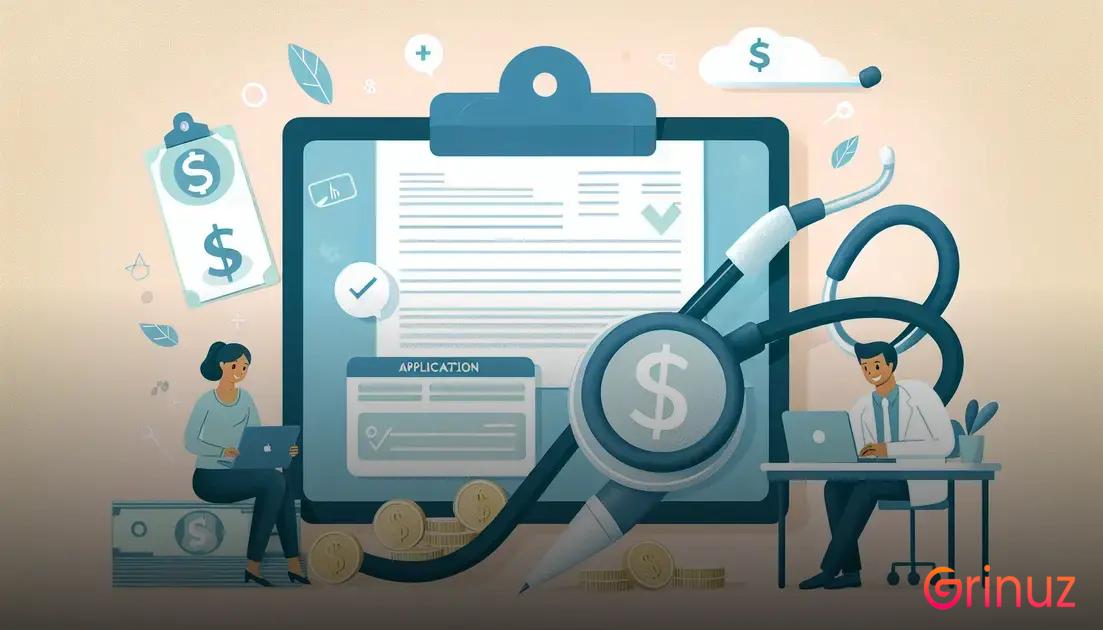Medical loans can be a lifesaver during unexpected health emergencies. These loans are specifically designed to cover medical expenses, offering a quick and reliable solution when you need it most. Understanding how medical loans work and their benefits can help you make informed decisions.
Understanding medical loans
Medical loans are a type of personal loan specifically designed to cover health-related expenses. These expenses can range from emergency surgeries, medical procedures, medications, or even regular check-ups that might not be covered by insurance. By providing patients with necessary funds, medical loans ensure that financial constraints do not come in the way of receiving essential healthcare.
Different lenders offer various interest rates and repayment terms for medical loans. It is crucial to understand these aspects, as they will directly affect your monthly payments and the overall cost of the loan. Some lenders might also have specific requirements, like a minimum credit score or proof of income, which you must meet to qualify.
Another critical point to consider is whether the medical loan requires collateral. Typically, medical loans are unsecured, meaning you don’t have to pledge any assets. However, the interest rates on unsecured loans can be higher compared to secured loans.
Key Features of Medical Loans:
- Loan amounts can vary depending on the lender, ranging from a few hundred to thousands of dollars.
- Repayment periods can be short-term or long-term, often stretching from a few months to several years.
- Interest rates vary widely, and fixed-rate loans provide predictable monthly payments.
- Some lenders offer quick approval and funding, crucial for urgent medical needs.
Benefits of medical loans

Medical loans offer a range of essential benefits that can provide substantial relief during times of medical financial stress. One of the main advantages is easy access to funds when unexpected medical expenses arise. This can help cover costs for surgeries, treatments, or any urgent medical needs without delay.
Another benefit is flexible repayment options. Medical loans often come with various terms, allowing you to choose a plan that fits your budget and financial situation. This flexibility ensures that you can manage your repayments without overwhelming financial pressure.
Medical loans also typically feature lower interest rates compared to credit cards or unsecured loans. This can result in significant savings over time, making it a cost-effective solution for managing medical expenses.
Furthermore, medical loans can help protect your savings and investments. By using a medical loan, you avoid the need to dip into your savings or liquidate assets, preserving your financial stability for the future.
For those with high-deductible insurance plans or no insurance at all, medical loans provide a critical lifeline. They can bridge the gap between what insurance covers and what you need to pay out-of-pocket, ensuring you receive necessary care without financial hardship.
Lastly, many lenders offer quick approval processes for medical loans, enabling prompt funding when time is of the essence. This can be especially crucial in emergency situations where immediate medical attention is required.
Eligibility criteria for medical loans
To qualify for a medical loan, various lenders have specific criteria that applicants must meet. Understanding these requirements can increase your chances of approval. First, most lenders will check your credit score. A good credit score indicates that you are a reliable borrower and increases your likelihood of securing a loan with favorable terms. Additionally, lenders often look at your income. A stable income ensures that you can make monthly payments without much financial strain.
Lenders may also consider your employment status. Being employed or having a consistent source of income demonstrates your ability to repay the loan. Another crucial factor is your debt-to-income ratio, which compares your monthly debt payments to your gross monthly income. A lower debt-to-income ratio suggests better loan manageability.
Some lenders might also require you to provide certain documents, such as tax returns, pay stubs, or bank statements, to verify your financial status. Lastly, having a co-signer with a good credit score can sometimes help, especially if your own credit score is less than stellar.
How to apply for medical loans

When facing high medical bills, a medical loan can provide much-needed financial relief. To apply for a medical loan, follow these comprehensive steps:
1. Research Lenders
Start by researching reputable lenders who offer medical loans. Look for lenders with good reviews and a history of customer satisfaction. Pay attention to the interest rates, terms, and conditions they offer.
2. Check Your Credit Score
Your credit score will impact the interest rates and loan amount you can receive. Obtain your credit report and address any inaccuracies before applying. A higher credit score can lead to better loan terms.
3. Compare Loan Options
Compare loan options from different lenders. Consider the APR, repayment terms, and any additional fees. Aim to choose a loan that offers flexible repayment terms and a lower interest rate.
4. Gather Necessary Documents
Most lenders will require certain documents for the application process. Common documents include:
- Proof of identity (e.g., driver’s license or passport)
- Proof of income (e.g., pay stubs or tax returns)
- Medical bills or estimates
- Bank statements
Having these documents ready can expedite the application process.
5. Submit the Application
Once you have chosen your lender and gathered your documents, complete the loan application. This can usually be done online or in person. Be sure to fill out all required fields accurately.
6. Review Loan Terms
After your application is reviewed, you will receive the loan terms. Review these terms carefully, including the interest rate, repayment schedule, and any other fees. Ensure you understand all aspects of the loan agreement before accepting.
7. Accept and Receive Funds
If you agree to the terms, accept the loan offer. The lender will disburse the funds to your account, often within a few business days. Use these funds to cover your medical expenses.
Tips for choosing the right medical loan
When looking for a medical loan, it’s crucial to compare various options and choose one that best suits your needs.
Consider the Interest Rates
Check the annual percentage rate (APR) of different lenders. A lower interest rate can save you money in the long run.
Review Loan Terms
Look at the repayment period. Shorter terms may have higher monthly payments but lower overall costs.
Check for Additional Fees
Some loans may come with origination fees or prepayment penalties. Understand these costs upfront.
Evaluate Customer Reviews
Research what other borrowers have to say about their experiences. Strong customer support can make a big difference.
Consider Your Credit Score
Your credit score can affect loan approval and interest rates. Know your score and seek loans that accommodate it. Look for Flexible Repayment Options Some lenders offer flexible payment plans that can ease your financial burden. Use Online Calculators These tools can help you estimate monthly payments and total costs based on loan amounts and terms. Lastly, consult with a financial advisor if you feel uncertain about any terms or conditions. They can provide valuable insights based on your financial situation.





